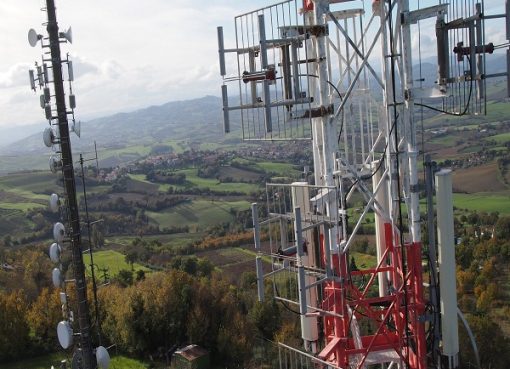Any plan by the Nigerian National Petroleum Company (NNPC) Limited to exercise its pre-emptive rights over the sale of the assets of its Joint Venture (JV) partners may mean nationalisation of the facilities and a “demarketing” of Nigeria’s fossil fuels, the Editorial Board of Africa Oil & Gas Report, has posited.
In the article titled “NNPC’s Grab and Grab Will Demarket the Nigerian Hydrocarbon Opportunity,” the oil and gas-centred magazine, opined that if NNPC’s intention is to take over ownership from non-investing partners through acquisition of the rights in the JVs, it will send the wrong signal to foreign and local investors.
Although still speculative, the editorial stated that if the national oil company makes good its plan, “investors around the world will mark Nigeria as a no-go area”, since the NNPC could simply exercise its pre-emptive rights after they (investors) must have spent millions of dollars going through the bid process.
To buttress its argument, the magazine stated that in the week of January 24, 2022, speculations emerged that the NNPC had exercised its right of pre-emption of the ongoing divestment of ExxonMobil’s JV assets, located in the shallow offshore in Nigeria.
On the heels of those speculations, it stated that the news that the state hydrocarbon firm had received a $5 billion corporate finance commitment from the African Export Import (Afrexim) Bank to fund major investments in the country’s upstream sector, also emerged.
The company’s editorial board insisted that if NNPC’s plans for the money include pre-empting the sale of ExxonMobil’s and /or Shell’s JV assets to other parties, then it would be deeply concerning.
Specifically, the company stated that two sentences in the press release announcing the Afreximbank transaction, called for concern, namely that NNPC would be raising between $3.5 billion and $5 billion as corporate finance to fund major upstream investments and the second being the plans to take over ownership from non-investing partner through acquisition of pre-emption rights in the sample JV.
According to the board, the statements appeared to confirm the speculations that the NNPC was exercising its right of pre-emption on the ongoing divestment of ExxonMobil JV assets.
“If they do, we should all be worried by this proclivity of NNPC to grab and grab. For one, the Nigerian state is in dire need of investors taking interest in any sector of its economy, ”it noted.
In the ExxonMobil divestment process, the Africa Oil &Gas Report said that the preferred bidder is the dual listed Seplat Energy, Africa’s largest home-grown independent, which ran with Trident Energy, a London based explorer, backed with funding from Warburg Pincus, a leading global growth investor.
The reserved bidder, it added, is a consortium involving a new Nigerian independent and a London listed explorer, Cairn Energy, who made the first commercial oil find in Senegal and has invested over $400 million in the last 12 months acquiring Shell’s brownfield assets in Egypt.
“What this means is that the divestment from majors attracts the cream of global investors. NNPC just concluded pre-empting the sale of the Chevron operated Oil Mining Leases (OMLs) 86 and 88 to Conoil Producing.
“If it swoops on ExxonMobil, it will draw a pattern. It would mean that it would do the same for Shell. And what does that mean? Nationalisation?
“Soon, investors around the world will mark Nigeria as a no-go area. For how do you spend over $4 million in a bidding process only to get to a pre-emption sign at the end?” it queried.
Describing the recent Marginal Field Bid Round as bungled and an exercise that turned out to be the least transparent licence offering anywhere on the continent, the board stated that the last thing Nigeria needs is to be seen as a jurisdiction in which a company, from anywhere, is not welcome to bid for assets.
According to the magazine’s official position, what’s particularly noteworthy about its penchant for grabbing is that NNPC is not using them to build any capacity.
It posited that NNPC will not manage the assets, adding that any excuse about “this being taken over in the interest of the state” is untrue.
It added: “In the last three years, it has implemented Finance and Technical Service Agreements (FTSAs), with companies that it chooses to work the assets. Its choice of ‘partners’ for the assets it grabs points more to cronyism than the quest to help build an industrial economy.
“So, NNPC takes an asset that should have gone to Conoil, a proven operator of oilfields in the last 30 years, and turns around to ‘sell’ the asset to MRS, a far downstream player.
“This time it plans to, if the speculations are confirmed, snatch victory from the jaws of Seplat, a 12-year old technically honed operator with 80,000BOPD operated production capacity and then ‘sell’ it, through an FTSA arrangement, to a company that participated in the ExxonMobil bid but lost out? “
While calling on those impacted to challenge the matters in court, the board noted that the argument that the NNPC was seeking to take advantage of the opportunity provided by the new Petroleum Industry Act (PIA) does not hold water since the national oil company is already in JVs in acreages that produce 45 per cent of the country’s crude.
It continued: “It (NNPC) is also the Concessionaire in the Production Sharing Contract (PSC) arrangements, which deliver over 39 per cent of the crude, according to the 2018 Oil and Gas Industry annual report by the Nigerian Upstream Petroleum Regulatory Commission (NUPRC).
“And there is the matter of NPDC, the operating subsidiary of NNPC, which has been gifted joint venture participation in 10 Oil Mining Leases (OMLs), all of them producing.”
According to the report, in 2019 alone, the Nigerian government added more to the cart and approved the transfer of OMLs 11, 24 and 98, including the operatorship of OML 116, from Federation’s interest (NNPC) to NPDC which is also the sole stakeholder in three producing OMLs and two non-producing ones.
Source: Thisday










